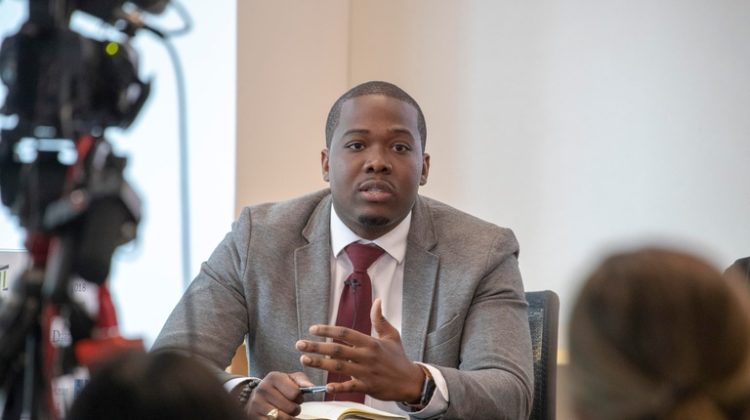
Photo via Rootscamp
Last month, New York officials started a public health campaign aimed at spreading awareness of current cannabis laws, and paving the way towards legalizing the sale of cannabis in the state. Through this campaign, ads and messages will be put up to educate the public on how to use cannabis responsibly and safely.
The Executive Director of New York’s OCM (Office of Cannabis Management), Chris Alexander, commented during a press conference in Manhattan:
“We’ve got 100 years of stigma to undo, to reeducate the state of New York on what cannabis is, how it can be used, how it can benefit their lives, but also the risks where they exist.”
While he has only taken his current position for nine months, Chris Alexander played a major role in working towards ending the prohibition of cannabis. Who is this man and what is his history?
Chris Alexander’s History
According to the Times Union, Chris Alexander started his campaign to legalize cannabis use by joining the DPA (Drug Policy Alliance) in 2015. He joined for one major reason: reducing arrests in New York that were related to cannabis. His upbringing at Hollis, Queens had let him witness firsthand his family and friends being arrested for unlawful possession. In order to prevent these arrests, undertaking the legalization of cannabis was no easy task.
The first step was changing public opinion as Chris Alexander notes,
“We were doing a lot of community work across the state, engagement with faith leaders and community groups, all of that groundwork. And while doing that we started redrafting the bill.”
Over the course of the years, he has found himself working in Senate committees, at the multi-state cannabis business Vill, LLC, and now leading OCM. Based on an entry by Rootscamp, he used his experience in legislation and community organizing to end mass criminalization and the war on drugs. In addition to this, he took efforts to reform New York’s criminal justice system: ending solitary confinement, changing policies on parole, and giving access to education in state prisons.
Providing Retail Licenses
According to WXXI News, those that were previously convicted for cannabis possession would be able to obtain licenses to sell recreational cannabis. This was a measure to help those affected by the war on drugs and hemp farmers.
Based on one statistic, Christ Alexander has noted:
“To my last count, the state has arrested over almost a million people over the last 20 years for cannabis offenses. And several, a lot of those individuals have then gone on to open and operate successful businesses. Small businesses that will become the backbone of this market.
In an article by The New York Times, the plan is to establish a $200 million fund to kickstart new businesses. Much of this money would go towards finding and preparing new storefronts for the retailers. This is particularly significant due to recent spikes in real estate prices that may hinder growth in the cannabis industry. The first of these cannabis retail licenses given out to social equity applicants with cannabis-related offenses or family members that do. This measure will take in account their business plans and experience.
While Chris Alexander’s proposal has faced criticism for giving priority to those with criminal records, it also takes into account equity for the disproportionate amount of Black and Latino arrests.
In fact, Filter Mag has previously shown statistics for the first three months of 2021. Out of 3,687 summons related to cannabis possession, Black people recieved 2,374 summons, Hispanic people received 1,089 summons, and White people received 102 summons. For arrests, there were 78 Black people arrested, 70 Hispanic people arrested, and six white people who were arrested for cannabis. This means roughly 91% of NYPD arrests for cannabis were Black or Latino.
Throughout his career, Chris Alexander has made great contributions to these affected communities and continues to advocate for the cannabis industry. Taking these steps to legalization is vital in order sway public opinion on the use of cannabis.


Thank you for the work you are doing to legalize cannabis and to bring awareness that it’s a natural, God given medicine. It was only made illegal so that certain people could make money from it and place others in jail for making money from it. God bless you.